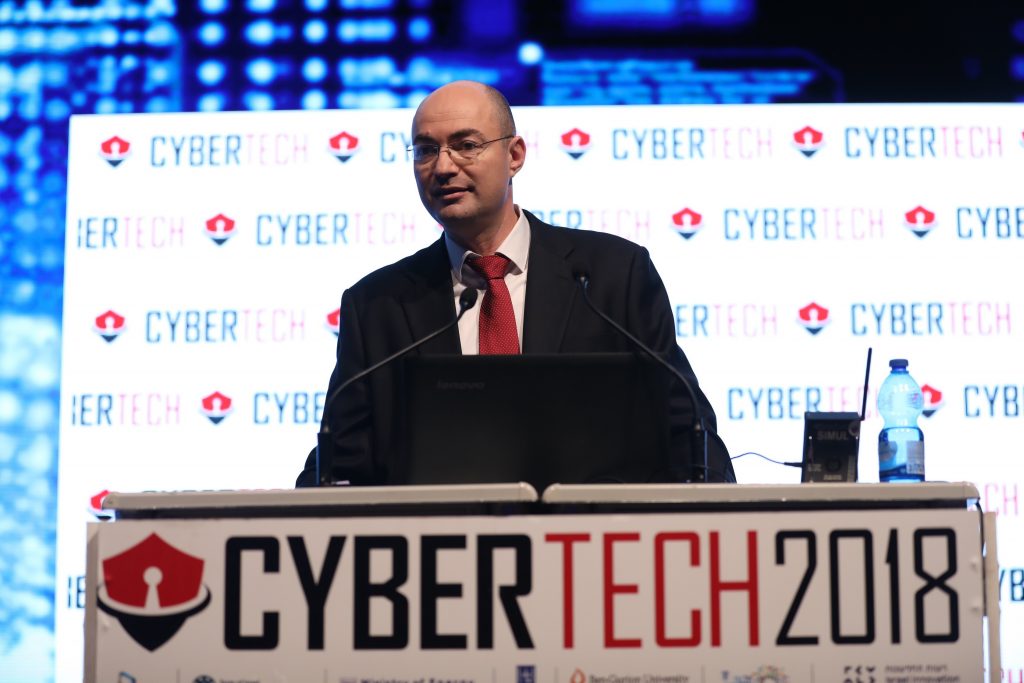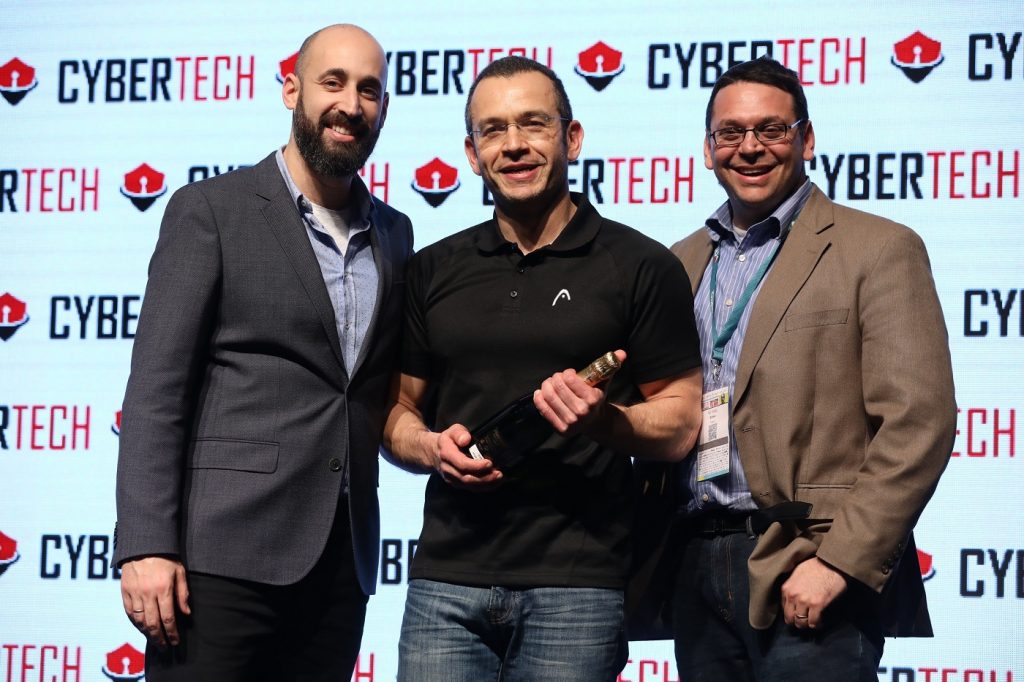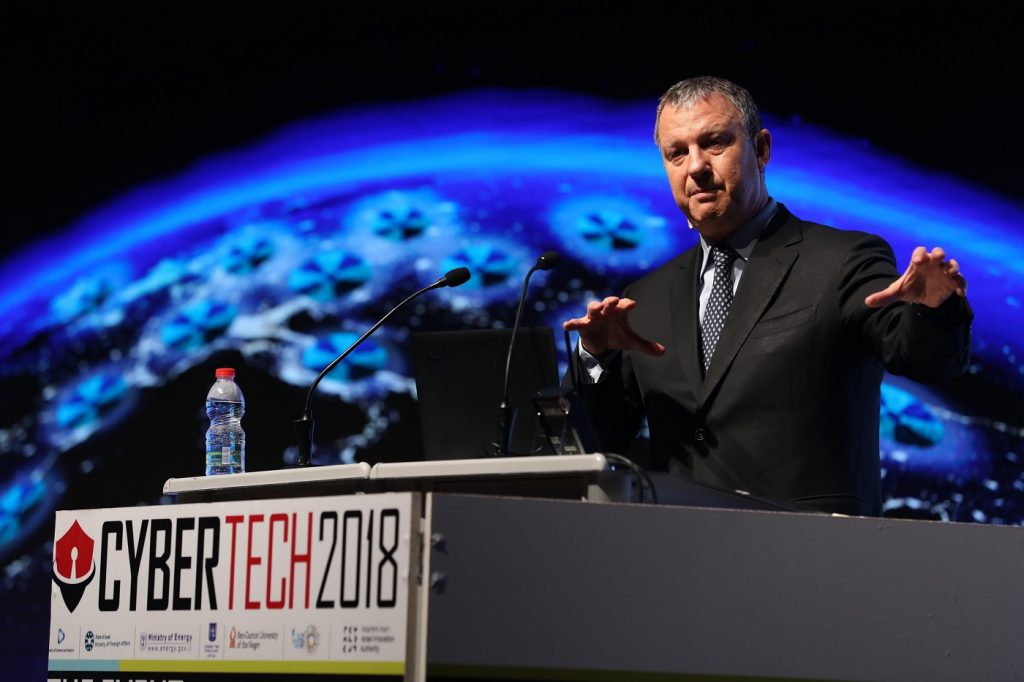As the Western world has grappled with how to prevent Iran from becoming a nuclear power, it’s already become a cyber superpower whose agents attack Israeli targets on a daily basis, said former Israeli MK Erel Margalit, the founder and chairman of the prominent JVP venture capital fund.
Speaking at the annual CyberTech conference which wrapped up on Wednesday in Tel Aviv, Margalit said Iran has cyber capabilities “not yet encountered in the cyber arena” and that Israel will have to contend with attempts at massive breaches in the next round of violence with Lebanese terror group Hezbollah, an Iranian proxy.
SEE ALSO: Israel Is a Small Country, But A Cyber Superpower, Says Ex-CIA Director At CyberTech 2018
“While the world is trying to delay and prevent Iran from becoming a nuclear power, Tehran has already become a cyber power, with attacks against Israel, the US, Saudi Arabia and others. In any confrontation with Hezbollah, Israel will have to contend with Iranian cyber-capabilities that we have not yet encountered in the cyber arena, especially in light of the lack of protection for civilian infrastructure in Israel,” he said.
“The Iranian nuclear threat is a future threat, but the Iranian cyber threat is an immediate threat, and Israel’s civil infrastructure in Israel is exposed and vulnerable, Margalit said, adding that “11 Revolutionary Guard strike groups attack Israeli nuclear researchers and civilian infrastructure on a daily basis. We know of many attacks in the region and in other parts of the world, on civil targets and military targets, many of them financed and are an extension of Iran.”
Margalit revealed that Iran is the main suspect behind a cyber attack in December 2016 on a shipyard belonging to German steel giant ThyssenKrupp, from which Israel is buying ships and submarines in a $2.5 billion deal that is under investigation by Israeli authorities. The probe, known in Israel as case 3000, focused on suspicions top officials were bribed to influence Prime Minister Benjamin Netanyahu’s approval of the deal, which was opposed by the Defense Ministry. Netanyahu is set to be questioned in the affair and has faced calls to resign amid two other graft investigations into his actions.
Margalit said the hack into ThyssenKrupp, which is partly owned by a Lebanese businessman with strong ties to Iran and in which the Iran Foreign Investment Company has a 4 percent stake, resulted in the theft of “sensitive information…from the ThyssenKrupp shipyard, where the future Israeli Corvettes and submarines were being built,” including “the specifications of the submarine and ships that Israel was set to purchase.”
He also noted that in December, “Iran once again attacked energy installations of Saudi Aramco, and if it hadn’t been for covert protective measures, this attack could have ended in hundreds of direct casualties and hundreds of thousands of indirect ones.”
The former MK, who served as a member of the Zionist Union, the leading opposition party, and resigned last year, called for a NATO-type organization should be established to deal with cyber threats and that Israel should lead it.
“We must create a regional cyber alliance to connect to the rest of the world, and work as one, in order to obstruct the massive potential exposure that might harm us all,” he said.
Sign up for our free weekly newsletter
SubscribeCalls for more unity and collaboration in the face of mounting cyber threats were heard repeatedly in the 3-day CyberTech conference, which attracted some 15,000 attendees this year, including representatives from over 200 companies and 160 international delegations from 80 countries. On Tuesday, the director-general of the Israel National Cyber Directorate at the Prime Minister’s Office, Yigal Unna, said that “one of the most significant solutions is the formation of an international cyber coalition, as part of a comprehensive approach [to cyber threats].”

Yigal Unna, the director-general of the Israel National Cyber Directorate. Photo by Gilad Cavalerchic
Speakers at the event also praised Israeli cybersecurity know-how and Israel cyber startup ecosystem which boasts some 420 active companies as of 2017, according to a report published this week by Start-Up Nation Central.
The former director of the CIA, Gen (Ret) David H. Petraeus, said Israel was a cyber superpower, despite its small geographic size, and that US-Israel collaboration have reached “news heights time and time again, far beyond what is being published in the media.”
Cyber contest
The event hosted several plenary sessions and discussion panels on a number of topics including cybersecurity in the transportation industry, privacy protection, developments in fields of artificial intelligence (AI), big data, mobility, and cloud security, and technology and terrorism.
The event also included a startup contest for the most innovative cyber initiative, won by Jerusalem-based early-stage startup Protego, ostensibly named after the charm in the Harry Potter books that can fend off spells. The company, which provides full life-cycle security for serverless applications and is currently in stealth mode. won two entry tickets to the RSA conference, the information security industry’s largest annual event, held in San Francisco, California in April.

Protego Labs wins the startup contest at CyberTech Tel Aviv 2018, January 31. Photo by Gilad Cavalerchic
Over 150 speakers from the cyber industry across the world addressed the crowds over the course of the week, including Nadav Argaman, the head of the Shin Bet, Israel’s Internal Security Agency, Education Minister Naftali Bennett, the CEO of the Israel Innovation Authority Aharon Aharon, and heads of major companies, some of which took part in the exhibitions.
At the seminar on terrorism and technology on Wednesday, CyberTech Conference Chairman and renown Israeli entrepreneur Yossi Vardi wound down the event with a pessimistic tone, saying that while international collaboration against cyber dangers is needed, “the bad guys will always adapt.”
Related posts

Editors’ & Readers’ Choice: 10 Favorite NoCamels Articles

Forward Facing: What Does The Future Hold For Israeli High-Tech?

Impact Innovation: Israeli Startups That Could Shape Our Future




Facebook comments